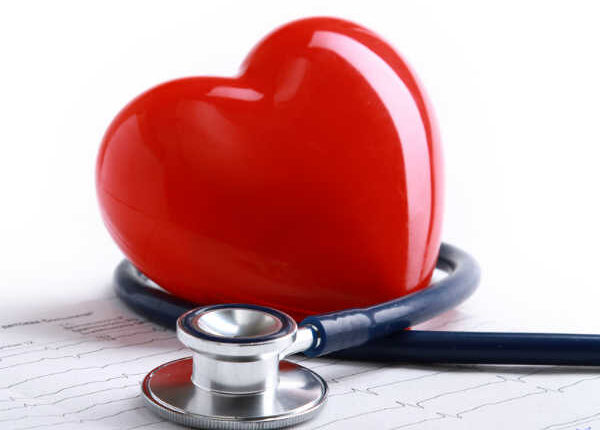According to the CDC findings, about one out of every three American adults have high blood pressure or hypertension. Because people with high blood pressure do not usually have any symptoms until the disease has reached an advanced stage, that’s why treatment may delay.
High blood pressure is often called the silent killer. The lack of symptoms is why some people who may be aware they have high blood pressure do not take any steps to control and treat it. Because they feel it’s no big deal, everything is okay.
But the truth is, high blood pressure if left untreated or uncontrolled, over time, it can lead to life-threatening complications such as: stroke, kidney, eye and heart disease, sexual dysfunction, chest pain, memory loss and bone density damage.
1. Strokes
Uncontrolled high blood pressure can cause Stroke. As high blood pressure causes a person’s arteries to get narrower and narrower, it is harder for blood to get to the brain. That can potentially cause blot clots in the brain, cause a blood vessel in the brain to leak, or cause a blood vessel in the brain to rupture.
2. Kidney Disease
Kidney disease can occur if high blood pressure is left uncontrolled or untreated. If the arteries in the body are narrowed from sustained high blood pressure, the impaired flow of blood throughout the body can cause waste to build up in the blood because it is not getting to the kidneys often enough to discard all the waste products. As the waste builds up, it becomes more and more difficult for the kidneys to try and get rid of the waste, putting a big strain on the kidneys. This can cause the kidney functions to greatly diminish or even fail entirely.
In addition, if the kidneys start to function at less than twenty percent(20%) of capacity, dialysis treatments will usually be needed. A kidney transplant would be an option to avoid having to get lifetime dialysis treatments if the person is a candidate for a transplant and a kidney becomes available.
Also read how to cleanse your kidney naturally
3. Sexual Dysfunction
Although aging can affect a man’s erection, the inability of a man to maintain an erection(sexual dysfunction ) becomes more serious if the man has high blood pressure, as well. Over time, high blood pressure damages the lining of your blood vessels and causes your arteries to harden and narrow (atherosclerosis), limiting blood flow. This means less blood is able to flow to your penis.
For some men, the decreased blood flow makes it difficult to achieve and maintain erections — often referred to as erectile dysfunction. The problem is fairly common, especially among men who are not treating their high blood pressure.
Consequently, high blood pressure may lead to sexual dysfunction in women. It can reduce blood flow to a woman’s vagina. For some women, this leads to a decrease in sexual desire or arousal, vaginal dryness, or difficulty achieving orgasm.
Read more about erectile dysfunction and it’s fruit remedy
4. Vision Problem
Uncontrolled high blood pressure can also affect your eyesight and lead to eye disease. Your eyes are full of small blood vessels that can easily be strained or damaged by high blood pressure. It also can cause swelling of your optic nerve. Lowering your blood pressure sometimes can reverse vision problems. But if left untreated can cause permanent vision loss or impairment.
5. Heart Problem
Heart problems are another serious problem that can develop if high blood pressure is left uncontrolled or untreated. The arteries in the heart can become hard and stiff from restricted blood flow, causing a condition called arteriosclerosis (hardening of the arteries).
It is common for people with untreated or uncontrolled high blood pressure to have plaque accumulate in the major arteries of the heart. The plaque deposits reduce blood flow to the heart and can eventually cause a heart attack.
Also read: Heart attack and 10 ways to avoid it.
High blood pressure narrows the arteries and blood vessels in the body. Getting oxygen-rich blood to the heart becomes more difficult as the arteries get narrower. If the heart cannot get enough oxygen, it will cause a heart attack.
Also, read Foods that can help boost your heart health.
6. Chest Pain
Chest pain, also called angina, occurs when the heart does not get the blood it needs. When people with high blood pressure perform activities such as walking uphill, going up steps, or exercising, angina can cause pressure, squeezing, pain, or a feeling of fullness in the chest.
7. Loss of Bone Density
High blood pressure can increase the amount of calcium that’s in your urine. That excessive elimination of calcium may lead to loss of bone density (osteoporosis), which in turn can lead to broken bones. The risk is especially increased in older women.
8. Memory Loss
Memory loss or dementia is a brain disease resulting in problems with thinking, speaking, reasoning, memory, vision, and movement. There are a number of causes of memory loss (dementia). One of its causes is vascular dementia. It can result from narrowing and blockage of the arteries that supply blood to the brain. It can also result from strokes caused by an interruption of blood flow to the brain. In either case, high blood pressure may be the risk factor.
Bottomline
High blood pressure(BP) or hypertension is a serious condition that rarely carries any symptoms and which if left untreated, can lead several to life-threatening conditions as mentioned above. Therefore it is important you get your BP checked and start treatment immediately.
You can test yourself with a self-test blood pressure tester if you are too busy to visit your doctor. Don’t worry, understanding your blood pressure readings will not be a challenge as all you need is in this article “Understanding your BP readings and Recommended treatment” While you are done with checking your BP status, understand the cause and begin treatment immediately.










